The shadow movement of right-wing sheriffs using their powers to resist gun control and investigate 2020 election
A growing movement of so-called ‘constitutional sheriffs’ believe they are the final word on the law on issues like Covid, guns, and the 2020 election, Josh Marcus reports


Your support helps us to tell the story
From reproductive rights to climate change to Big Tech, The Independent is on the ground when the story is developing. Whether it's investigating the financials of Elon Musk's pro-Trump PAC or producing our latest documentary, 'The A Word', which shines a light on the American women fighting for reproductive rights, we know how important it is to parse out the facts from the messaging.
At such a critical moment in US history, we need reporters on the ground. Your donation allows us to keep sending journalists to speak to both sides of the story.
The Independent is trusted by Americans across the entire political spectrum. And unlike many other quality news outlets, we choose not to lock Americans out of our reporting and analysis with paywalls. We believe quality journalism should be available to everyone, paid for by those who can afford it.
Your support makes all the difference.Nearly half of sheriffs in a nationwide survey felt that in their home counties, they are the final word on what’s legal and constitutional — no matter what state or federal laws or Supreme Court decisions say.
It’s a sign of the growing influence of “constitutional sheriff” ideology that’s spread to departments across the country in the last decade, a mindset that’s pushed sheriffs to resist Covid rules, gun laws, investigate election conspiracies, pal around with militia men, and racially profile their constituents.
According to a survey of 500 sheriffs across the country conducted by The Marshall Project and political scientists Emily Farris and Mirya Holman, more than 200 felt they are more powerful than legislators or presidents when it comes to deciding what’s legal.
Nearly a third of respondents agreed with the statement, “The traditional American way of life is disappearing so fast that we may have to use force to save it,” and more than 10 per cent said they personally support the right-wing Oath Keepers militia, the survey found.
Richard Mack, a former Arizona sheriff and militia man who founded the national Constitutional Sheriffs and Peace Officers Association says the group is non-violent and stands against racism, but nonetheless is fond of claiming, “Extremism in defense of liberty is no vice.”
Since 2011, Mack, who was a founding member and former board member of the Oath Keepers, whose members are currently on trial for their role in the January 6 insurrection, has trained an estimated 800 sheriffs in his belief system, which falls far outside the legal mainstream. In some states, however, like Texas, Virginia, and Montana, his courses count for professional education credits for officers.
Its right-wing teachings are clearly taking hold.
In Michigan, CSPOA member and Barry County Sheriff Dar Leaf has called Covid protocols “tyranny,” and shared a stage with a militia member charged in the kidnapping plot against governor Gretchen Whitmer.
Sheriff Leaf has defended the state’s militia men, arguing, “there’s a spot for a militia,” and claimed the kidnapping plotters were merely, “trying to arrest,” the governor. (Prosecutors say the men planned to blow up a bridge and wanted to put Ms Whitmer through a show trial for treason.)
Among 373 people identified in a database of Oath Keepers “members” who are currently serving in law enforcement agencies across the US, there are at least 10 chiefs of police – and 11 sheriffs.

Among the respondents to the survey, few blamed Donald Trump or militias for the January 6 attacks; instead, majorities said social media and antifa were responsible.
Sheriffs aligned with CSPOA in states like Michigan and Wisconsin have pursued spurious investigations into Donald Trump’s false 2020 election conspiracies that continue into 2022.
“This is all part and parcel of returning to a world where we’re using the criminal law in a way to make voting harder,” Sophia Lin Lakin, interim co-director of the Voting Rights Project at the ACLU, told The New York Times. “All the things that used to feel more fringy no longer feel so fringy, as we’re starting to see this very much collective effort.”
Mr Mack, the CSPOA leader, called 2000 Mules, a thoroughly debunked film about the election from Dinesh D’Souza, “smoking gun” evidence of a stolen election that convinced him to urge his aligned sheriffs to investigate the vote.
Georgetown law professor Christy E Lopez argues groups of constitutional sheriffs like the CSPOA are “subverting not only reform efforts but also core democratic principles.”
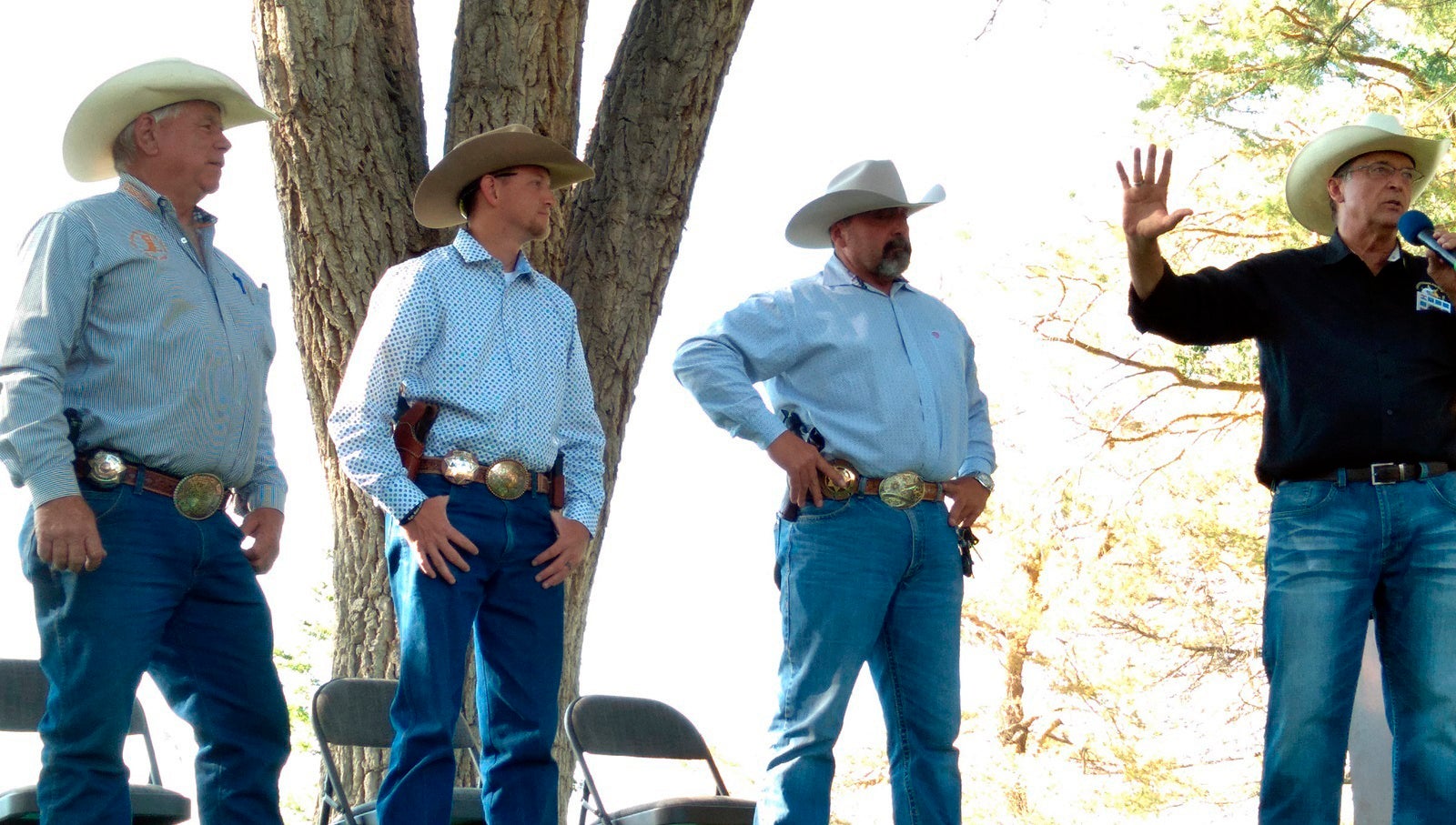
“Every believer in democracy should find it chilling that the CSPOA counts ‘several hundred’ sheriffs as dues-paying members and hundreds of other sheriffs as supporters,” she wrote in the Washington Post.
The group insists its members are non-violent, support lawful police tactics, and abhor racism and excessive force.
“This is a peaceful and effective process, à la Martin Luther King, à la Gandhi, à la Rosa Parks,” Mr Mack told The Marshall Project.
Despite referring to these revered figures of civil disobedience, Mr Mack and his contemporaries are claiming a sweeping power few consider legal and many believe is dangerous.
“The law enforcement powers held by the sheriff supersede those of any agent, officer, elected official or employee from any level of government when in the jurisdiction of the county,” CSPOA’s website reads. “The vertical separation of powers in the Constitution makes it clear that the power of the sheriff even supersedes the powers of the President. “
For a law enforcement movement, its officers frequently find themselves opposing what’s on the books.
Notorious former Arizona sheriff Joe Arpaio, a CSPOA backer, was found in contempt of a federal court order for racially profiling Hispanic people, only to be pardoned by Donald Trump.
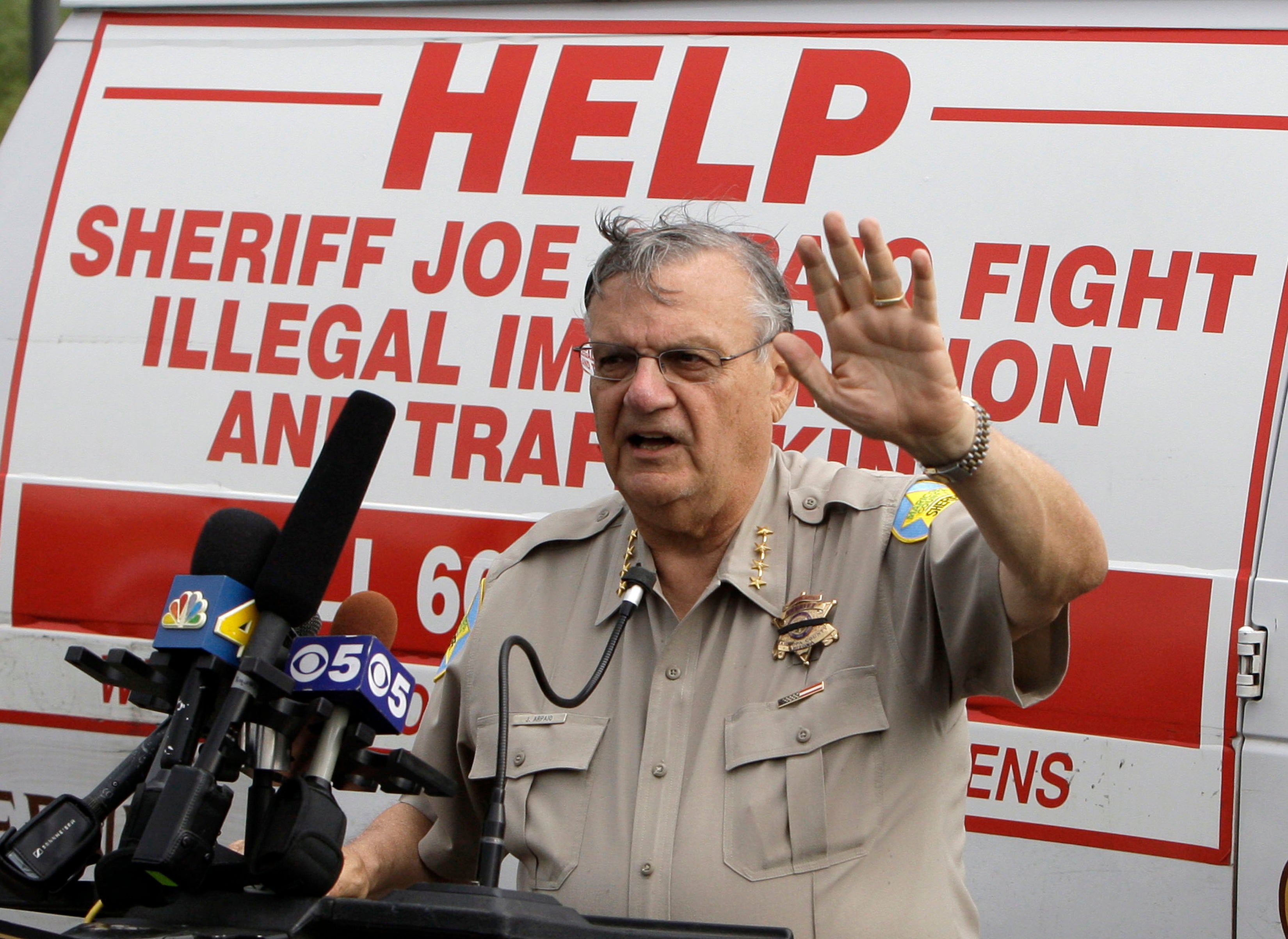
Constitutional sheriffs were vocal supporters of Cliven Bundy’s armed standoff with federal agents in Nevada, the Southern Poverty Law Center found, where the rogue rancher believed county sheriffs “the highest-ranking and really only legitimate law enforcement officer,” the hate monitoring group concluded.
During the pandemic in Oregon, constitutional sheriffs claimed their “God-given rights” allowed them to override the state’s mask mandates.
A separate Marshall Project investigation found at least 60 sheriffs around the country were involved in resisting Covid policies.
The constitutional sheriff movement has also played a key role in pushing back against gun control measures.
Conservative sheriffs in places like New York, as The Independent has reported, have refused to enforce or slow-walked the state’s new gun control measures, created after the Supreme Court struck down a long-running state concealed carry law.
In fact, resistance to gun control after the 2012 Sandy Hook massacre, and fears Barack Obama would seize weapons, led the movement to grow.
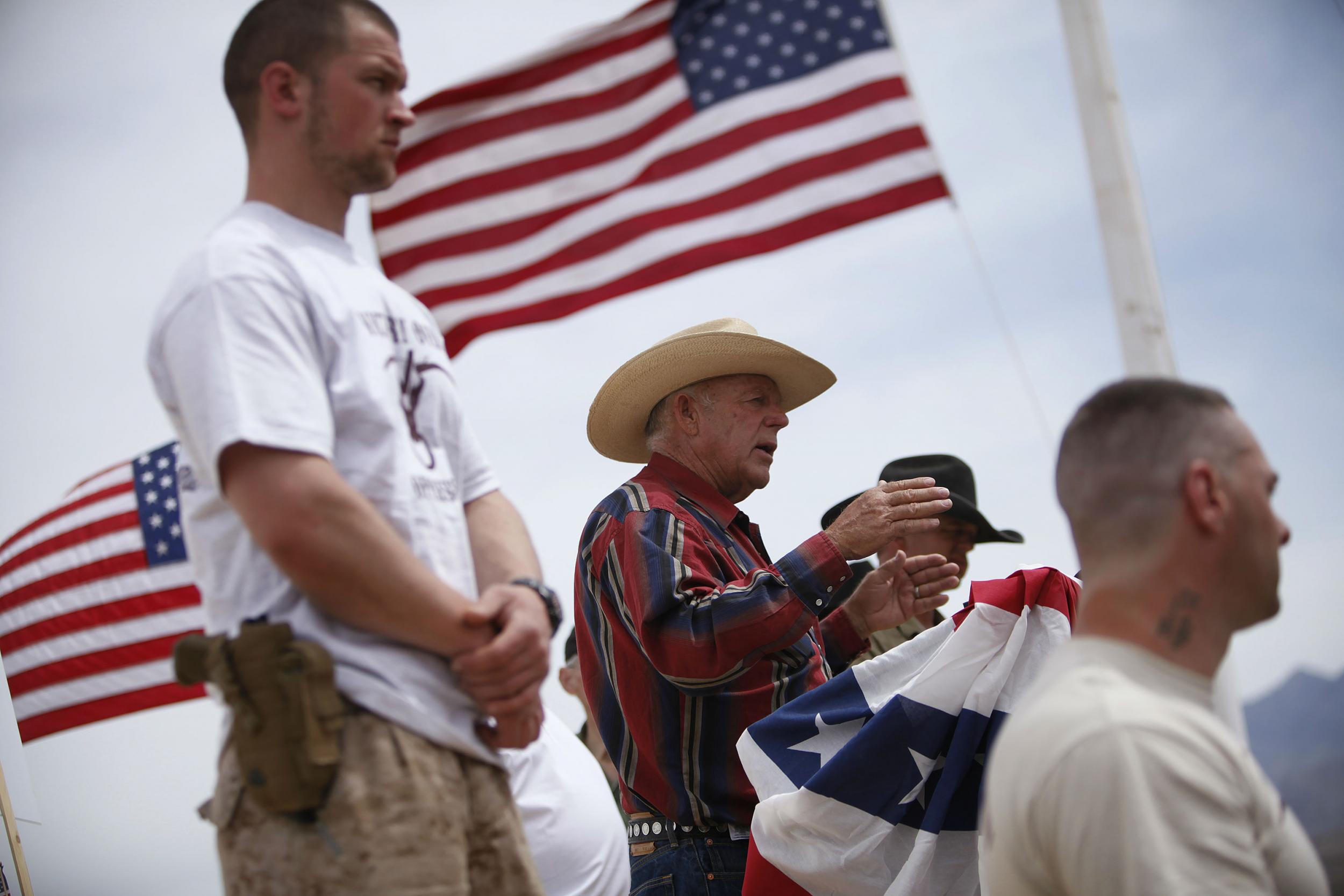
Mr Mack helped make his name by opposing the Brady Handgun Violence Prevention Act, which required sheriffs to help perform checks on gun buyers, taking a lawsuit all the way to the Supreme Court, where conservative justices struck down the rule as a violation of state sovereignty.
To this day, the sheriffs in the survey are 83 per cent opposed to a national ban on assault weapons.
One constitutional sheriff in Nevada went viral in 2019 for comparing gun control to Nazi Germany.
The history of the constitutional sheriff movement dates back decades, and frequently intersects with right-wing violence and hate.
Throughout American history, in rural areas, the base of the constitutional sheriff movement, law enforcement has turned a blind eye towards or actively participated in racist hate violence like lynching.
More recently, Southern sheriffs defied the 1954 Brown v Board of Education Supreme Court ruling ending racial school segregation.
In the 1970s, according to the SPLC, the the Posse Comitatus (“power of the county” in Latin) movement urged a theory of local supremacy as well as “anti-Semitic and racist” beliefs, leading one supporter to attack and kill two federal marshals in 1983.
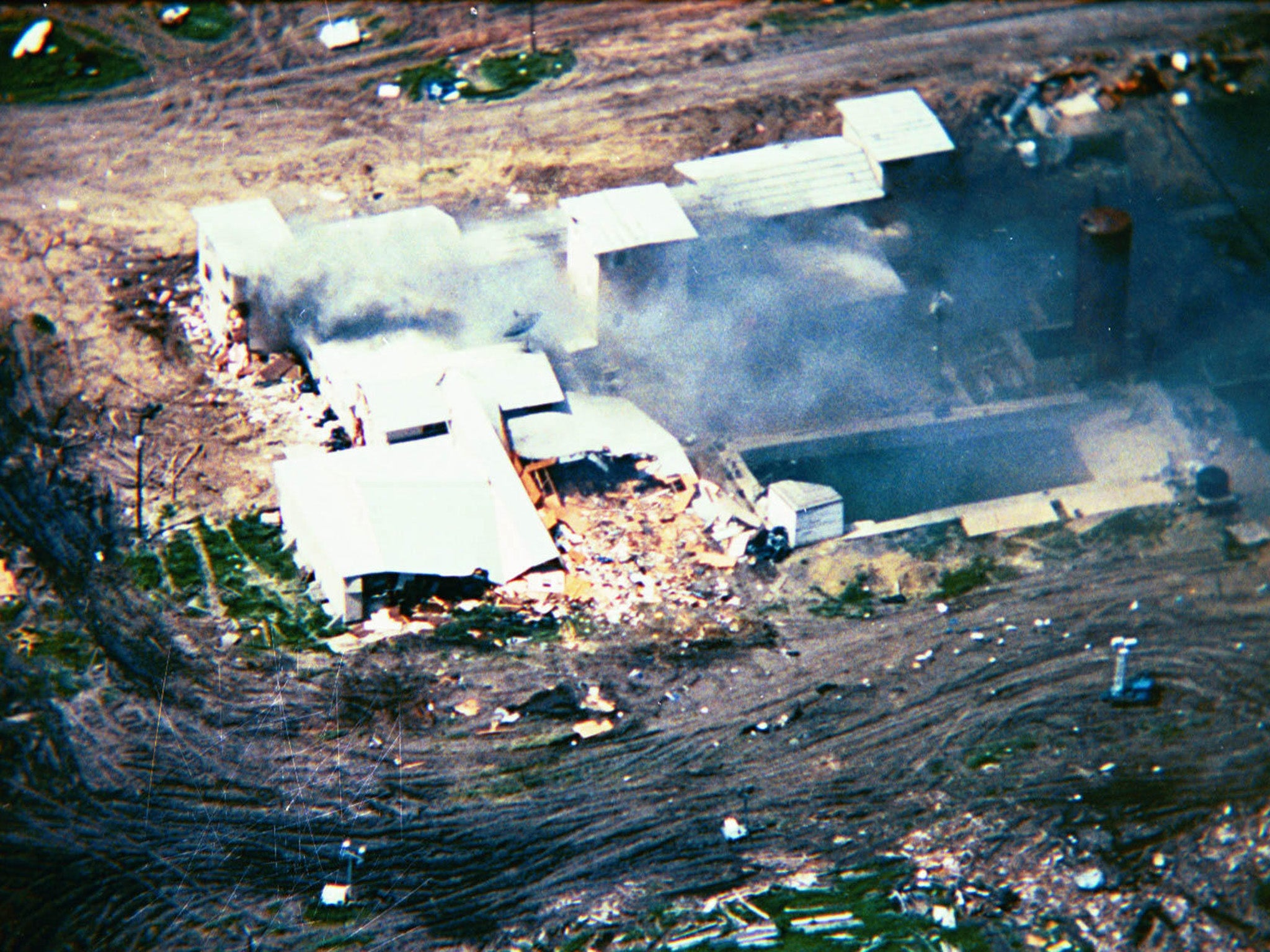
Later, in the 1990s, the disastrous federal standoffs at Ruby Ridge and Waco helped feed a growing, rural, right-wing militia movement.
According to the Anti-Defamation League, the constitutional sheriffs then picked up this mantel and “borrowed from the anti-government extremist sovereign citizen movement,” claiming “the county sheriff is the ultimate authority in the county, able to halt enforcement of any federal or state law or measure they deem unconstitutional.”
This set of beliefs is no longer fringe, argues Jessica Pishko, a reporter writing a book on sheriffs and democracy. They’ve won supporters who hold a contradictory set of beliefs, casting themselves both as law enforcement supporters and militia types ready to take power into their own hands.
“Their adherents tend to be middle-class white men who support law enforcement while, at the same time, promoting a militaristic view of the world that supports violence and rejects professional expertise,” Ms Pishko wrote in Slate. “The sheriff, long a staple of ‘good old boy’ culture, the lawman who can claim democratic authority, is a natural ally.”
But it’s not just cosplay, she warns.
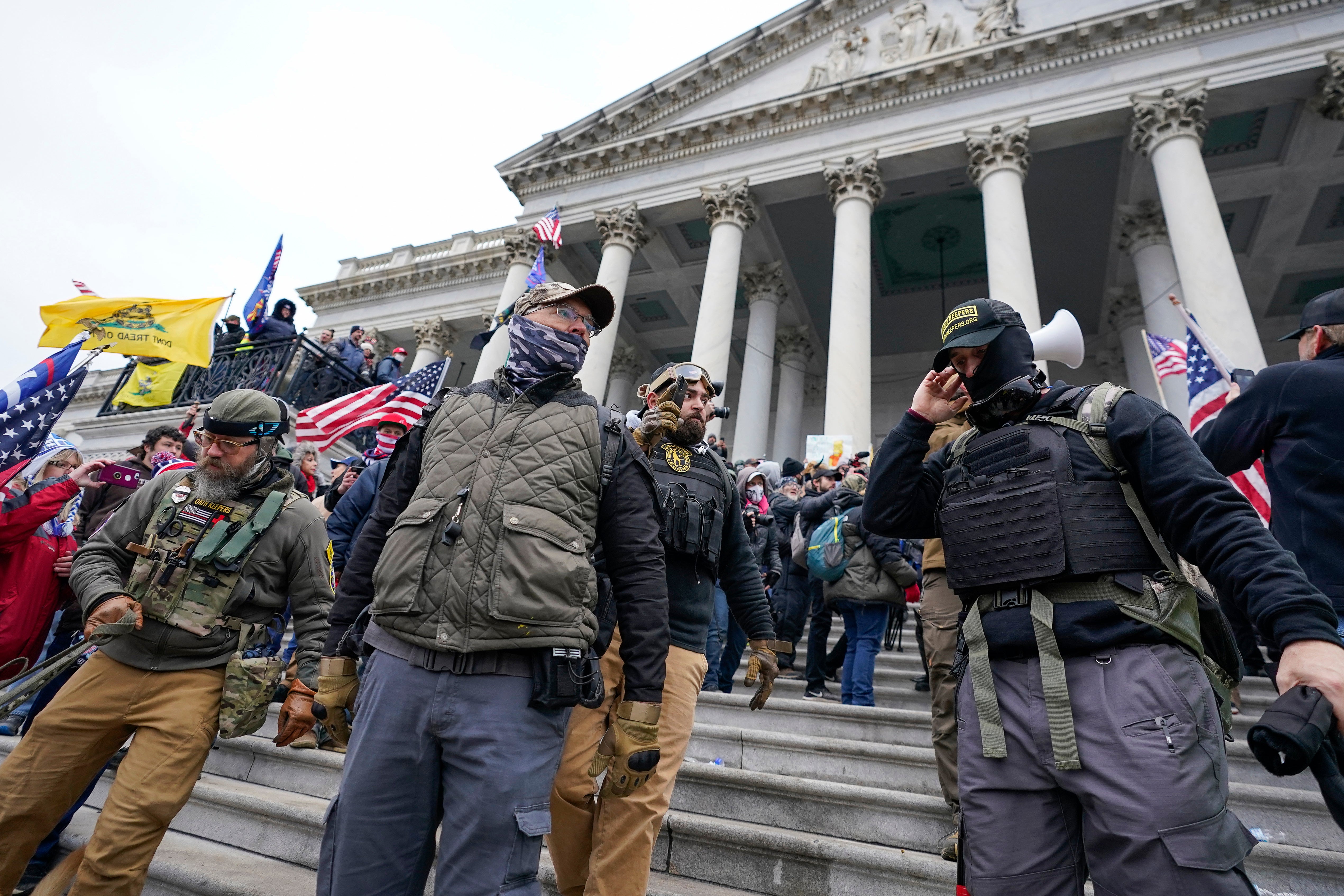
She points out that multiple former and current law-enforcement officers were present among the US Capitol rioters, and others around the country have expressed their support for the insurrectionists.
This support reached its zenith in the Trump administration, where the president pardoned Joe Arpaio and met with more sheriffs than any other administration.
As the country heads toward another divisive election season, in the middle of the pandemic, constitutional sheriffs around the country may further destablise the counties they are sworn to protect.


